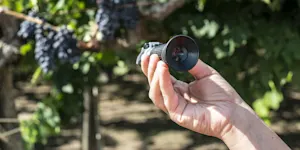What Makes This Word Tick
Macerate is one of those intriguing words that dances between the culinary and the scientific. It generally refers to the process of softening or breaking down something by soaking it in liquid. It's what you might do to strawberries when you want them to release all their juicy secrets into a syrupy pool.
If Macerate Were a Person…
Imagine Macerate as a soft-spoken botanist with a penchant for slow Sunday afternoons, gently encouraging processes to unfold at their natural pace. Never in a rush, Macerate is patient, understanding that good things take time.
How This Word Has Changed Over Time
Over the centuries, "macerate" has kept a fairly steady course in its usage, always hinting at the transformative power of liquids over solids. While its roots remain in softening, its applications have expanded from food to cosmetics, indicating its subtly evolving nature.
Old Sayings and Proverbs That Use Macerate
While there aren't ancient proverbs that specifically use the word "macerate," the idea is there in sentiments like "good things come to those who wait," implying the slow process of developing flavor or character over time.
Surprising Facts About Macerate
In the world of perfume making, maceration stands as a vital step where fragrant mixtures are slowly matured, allowing their scents to develop fully. This slow soak allows distinct layers of aroma to meld beautifully.
Out and About With This Word
You might find "macerate" in kitchen discussions, especially around the fruity concoctions of summer. But don't be surprised if it pops up in DIY beauty tutorials where enthusiasts talk about steeping ingredients to concoct natural, soothing lotions.
Pop Culture Moments Where Macerate Was Used
While not a word that frequently headlines in pop culture, it might feature in a highbrow cooking show or a sophisticated cocktail recipe, where chefs and mixologists delight in describing their creations with precision.
The Word in Literature
In literature, "macerate" might not often be the star of the sentence but plays a crucial supporting role in scenes where authors describe the preparation of a meal or a potion. It's a word that signals patience and the unfolding of flavors, much like a slow-burn narrative.
Moments in History with Macerate
In the apothecaries of old, herbs were often macerated to extract their healing properties, a practice that dates back to medieval times. This technique allowed ancient healers to create tinctures and salves thought to cure various ailments.
This Word Around the World
In French cuisine, the word "macerer" mirrors its English counterpart, emphasizing the tradition of enriching dishes slowly. Italian chefs may use "macerare" when preparing rich, flavorful sauces that benefit from long marinating.
Where Does It Come From?
"Macerate" derives from the Latin word "macerare," meaning to soften or weaken—a testament to its ancient roots and enduring relevance in transformations, whether of food, fragrance, or even human character.
How People Misuse This Word
Sometimes people mistakenly use "macerate" when they mean "marinate," which specifically involves soaking in a seasoned liquid, often to add flavor rather than just soften or break down.
Words It’s Often Confused With
Marinate: Both involve soaking, but marinating is about adding flavor, often with spices.
Maracerate: While not an actual word, it might humorously suggest an overzealous maceration!
Additional Synonyms and Antonyms
Synonyms for "macerate" include "soften," "soak," and "steep." Antonyms would be "harden" and "solidify."
Want to Try It Out in a Sentence?
To make the perfect sorbet, the chef decided to macerate the fresh berries overnight, allowing their flavors to fully infuse the syrup.
















